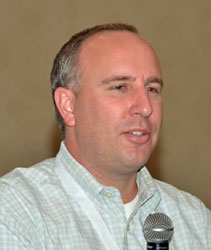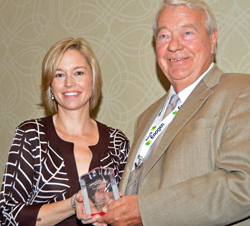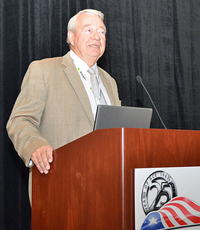Today’s USDA crop report shows the nation’s corn crop will be down 13 percent from last year’s numbers. But the country’s ethanol producers say that should not justify any waiving of the Renewable Fuels Standard. Both the Renewable Fuels Association and Growth Energy put out statements this morning right after the report came out, and the RFA says we already knew the drought would take its toll on the crop:
 “What this report does not do is provide justification for waiving the Renewable Fuel Standard for the rest of 2012. Given the abundance of RFS credits, ample ethanol stocks, and various other flexibilities, obligated parties under the RFS will have every opportunity to demonstrate compliance this year.”
“What this report does not do is provide justification for waiving the Renewable Fuel Standard for the rest of 2012. Given the abundance of RFS credits, ample ethanol stocks, and various other flexibilities, obligated parties under the RFS will have every opportunity to demonstrate compliance this year.”
RFA officials plan to hold a webinar next week to outline the report’s impact on U.S. ethanol production. Meanwhile, Tom Buis CEO of Growth Energy echoed RFA’s statement that we knew the drought would have an impact but predicted a big enough crop to meet demand:
 “We will have enough corn – in fact, USDA’s report demonstrates how the market is already working to cut demand as they actually increased available corn stocks at the end of the year – showing over one billion bushels of corn surplus. Ethanol production is already down 15 percent in the last month alone. Any attempt to change the Renewable Fuel Standard, our nation’s successful biofuel policy would simply be a knee-jerk reaction to the benefit of Big Oil. The current policy has flexibility built in for exactly these types of situations.”
“We will have enough corn – in fact, USDA’s report demonstrates how the market is already working to cut demand as they actually increased available corn stocks at the end of the year – showing over one billion bushels of corn surplus. Ethanol production is already down 15 percent in the last month alone. Any attempt to change the Renewable Fuel Standard, our nation’s successful biofuel policy would simply be a knee-jerk reaction to the benefit of Big Oil. The current policy has flexibility built in for exactly these types of situations.”












